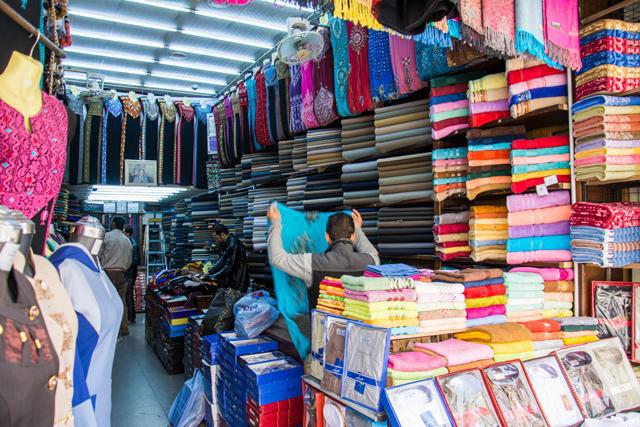You are here
Customs Dept. decision to scrap clothing sector guideline lists draws flak
By Rayya Al Muheisen , Maria Weldali - Jan 23,2022 - Last updated at Jan 23,2022
AMMAN — The removal of the clothing sector’s guideline lists by the Customs Department “runs counter” to the recent Cabinet decision to reduce customs tariffs on imported goods, according to representative of the garment and jewellery sector at the Jordan Chamber of Commerce (JCC) Asad Qawasmi.
“Reducing customs duty on clothes and footwear is a step up, but removing the sector’s guideline lists creates a whole new problem,” Qawasmi told The Jordan Times on Sunday.
“The decision to cancel the use of guideline lists by the Customs Department doesn’t go along with the prime minister’s recent decision to reduce custom tariffs for most of the imported goods,” he continued.
According to Qawasmi, guideline lists help importers estimate customs and duties that will be imposed on imported goods.
The Customs Department has stopped working by guideline lists for imported clothes from Turkey and China, in addition to imported carpets and rugs, said Qawasmi.
Guideline lists give importers price indicators, and therefore help monitor the market and maintain a price cap for goods available in the market, Qawasmi said, adding that cancelling the use of guideline lists will lead to price fluctuation.
“The amount to be paid as customs duty will now be determined by customs officials, and not according to clear and measurable standards,” he added.
It is of “utmost importance” to retain those lists as they help in stimulating the commercial traffic, he noted.
“We also urge the government to reduce sales and income taxes as well,” Qawasmi stated.
Reducing sales tax will result in preventing smuggling to the country, and most importantly, move the economic wheel, he added.
The government’s decision to reduce customs tariffs is estimated to increase importing goods by 20 per cent, said Qawasmi, which will boost tax revenue for the government.
“Globally, customs duties are calculated based on a specific criteria,” accountant Hazem Sharaiha told The Jordan Times.
According to Sharaiha, importers must have an estimate of the customs duties that will be paid when goods arrive in the country, with the overall tax amount being divided on each product and is added to the final price paid by consumers, meaning the decision will eventually directly affect consumers.
“I think that withdrawing guideline lists will also affect the competitiveness of importers,” Sharaiha noted.
Sharaiha stated that countries around the world levy customs duties on the import and export of goods as a means to raise revenue and shield domestic institutions from efficient competitors from other countries.
In a statement made available to The Jordan Times on Sunday, Jordan’s Textile and Readymade Clothes Syndicate called for retaining the guideline lists of the Kingdom’s clothing sector that have now been in place for 12 years.
The syndicate added that it is committed to working with the Customs Department and is prepared to discuss with its representatives anything regarding the guideline lists.
Related Articles
AMMAN—A government decision to lower tariffs on garment and footwear imports is expected soon, according to Asaad Qawasmi, representative of
AMMAN — The growing occurrence of transferring residential licences to commercial licences in Jordan, has significantly affected apparel bus
AMMAN — The high hopes that clothing and footwear merchants placed on Ramadan and Eid Al Fitr to boost the commercial movement of the sector


















